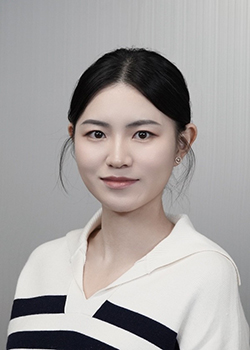Dr. Jiajia Liu became an Assistant Professor at McWilliams School of Biomedical Informatics at UTHealth Houston in July of 2025. Prior to this position, Dr. Liu worked as a Postdoctoral Research Fellow at McWilliams School of Biomedical Informatics at UTHealth Houston from July of 2023.
Her research is dedicated to developing cutting-edge AI-driven computational approaches to unravel complex biological systems at single-cell resolution, emphasizing key processes such as cell differentiation, cell cycle dynamics, cellular plasticity, and multi-omics data integration. She has served as a co-investigator on an NSF-funded project aimed at developing novel machine learning approaches to study cell development.
- Tell us about your research center and/or what research/work you are currently working on.
Our center, the Center for Computational Systems Medicine, is dedicated to developing cutting-edge, AI-driven computational approaches to unravel the complexity of biological systems. We are particularly focused on advancing AI technologies to gain deeper insights into systems biology, precision medicine, and disease mechanisms through the integration and interpretation of multi-omics data. By leveraging these approaches, we aim to identify novel therapeutic targets and drive innovations in data-driven biomedical research.
- What type of student or Postdoctoral Fellow are you looking for to work in your center?
We are looking for highly motivated students and postdoctoral fellows with a strong background in computational biology, bioinformatics, machine learning, or related fields. Ideal candidates should be passionate about solving complex biological problems using innovative computational approaches, have experience working with high-dimensional omics or single-cell data, and be eager to contribute to interdisciplinary research in bioinformatics and biomedicine.
- What does the future of your research look like?
The future of our research lies in building robust, generalizable biological AI agent systems capable of analyzing complex biological data, improving diagnostics, and enabling the development of novel therapies. Our goal is to advance the next generation of AI-driven agents that can model intricate biological systems, enhance data-driven discovery, and accelerate translational applications across medicine, biotechnology, and the life sciences.
- What does the future of informatics look like?
The future of informatics will be defined by the seamless integration of artificial intelligence with biological and clinical data to advance precision health. As data grows increasingly multi-dimensional and complex, spanning genomics, single-cell omics, imaging, and electronic health records. Informatics will play a central role in extracting actionable insights. We envision a future powered by intelligent, modular AI-Agent systems, composed of multiple specialized agents, each designed to address specific biomedical challenges across diverse domains. These agents will form a dynamic, interoperable ecosystem capable of enabling personalized diagnostics, optimizing therapeutic strategies, predicting disease progression, and accelerating biomedical discovery.
Education
- PhD, Computer Science, 2023, Tongji University, Shanghai, China
- BS, Computer Science, 2017, Nanjing University of Posts and Telecommunications, Nanjing, China
Areas of Expertise
- Computational Biology
- Bioinformatics
- Single-cell and Multi-omics Analysis
- Machine Learning and Artificial Intelligence
